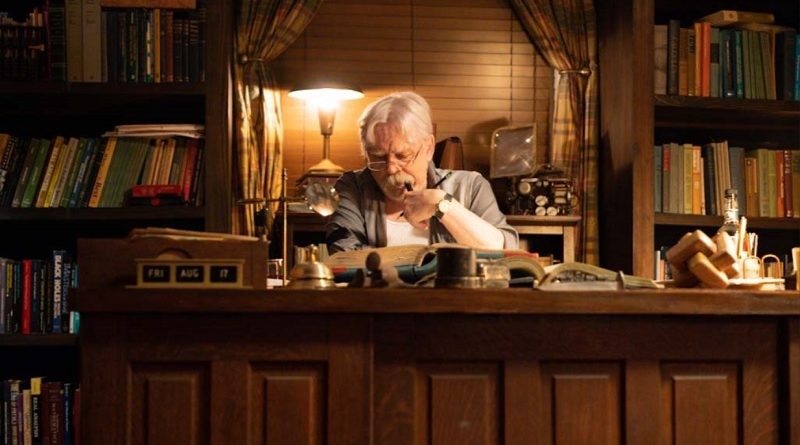Movie Review: The Life of Chuck
One-liner: An elegant, experimental, haunting, melancholic, joyous albeit scattered coming-of-age fantasy sci-fi drama.
Mike Flanagan’s The Life of Chuck, based on the short story by Stephen King, is a unique reverse coming-of-age fantasy sci-fi drama. It unravels the life of Charles ‘Chuck’ Krantz, a mysterious man whose story is told backward, starting with the end in Act Three. This unconventional structure immediately immerses the audience in a world on the brink, setting a curious tone for the chronicle of Chuck’s life.
The film opens with an unsettling prelude: strange phenomena, natural disasters, and the apparent disappearance of the internet plague the characters. Whispers of increased suicides and escalating, world-ending events create a sense of quiet dread, hinting at a return to a pre-digital era. The narrative then moves backward, with each act playing out forwards, slowly revealing snippets of information that gradually build a comprehensive picture of Chuck’s life. Rather than spoon-feeding the audience, Flanagan expertly uses narration to stitch these disparate acts together, making sense of the unfolding mystery. Each act feels like a self-contained short film, with some characters appearing only in specific segments, adding to the mosaic-like storytelling.
Flanagan, known for his masterful adaptation of King’s Doctor Sleep, expands this novella into a compelling supernatural drama. While there are subtle references to King’s broader universe and fleeting moments of horror, The Life of Chuck leans more into the supernatural than the outright horror for which King is typically known. The screenplay is remarkably unique, not only for its extensive narration but also for the simmering mystery that keeps viewers engrossed as they try to piece together the narrative.

“Let’s dance again… like we did last summer.”
The film’s pacing is deliberately slow-moving, allowing the mystery to build and adding to the story’s mystique. This deliberate tempo allows the audience to gradually connect the dots, leading to some of the film’s most impactful scenes. Tom Hiddleston is credited as the lead, appearing in each act, yet The Life of Chuck is truly an ensemble drama. The wide array of talented actors includes: a surprisingly good and almost unrecognizable turn from Mark Hamill in a key role, Benjamin Pajak as the young, innocent Chuck, Jacob Tremblay as teen Chuck, and Chiwetel Ejiofor as Marty Anderson. The film itself possesses a melancholic, even haunting quality, with a surreal ebb and flow that underscores the bittersweet nature of life.
Dance plays a pivotal and rich role in the film, adding elements of joy and heightened emotion as Chuck discovers a love and talent for it. While occasionally slow-moving, the film is also light-footed, maintaining a dreamlike quality that prevents complete immersion but enhances its unique charm. The soundtrack features nostalgic music from a bygone era, further contributing to the film’s evocative atmosphere.
Despite its occasionally disconnected feel due to its compartmentalized characters and performances, The Life of Chuck ultimately weaves together an elegant, poised, and sophisticated narrative. The reverse storytelling concept offers a fresh and unconventional exploration of a life well-lived. While some might desire more emotional weight or a stronger emotional punch, the film’s clever, cerebral approach, combined with the quality of its ingredients and the boldness of its execution, provides a truly novel and engaging cinematic experience. The earnest performances and dedication to King’s hauntingly beautiful story shine through, even with their scattered nature.
The bottom line: Evocative





